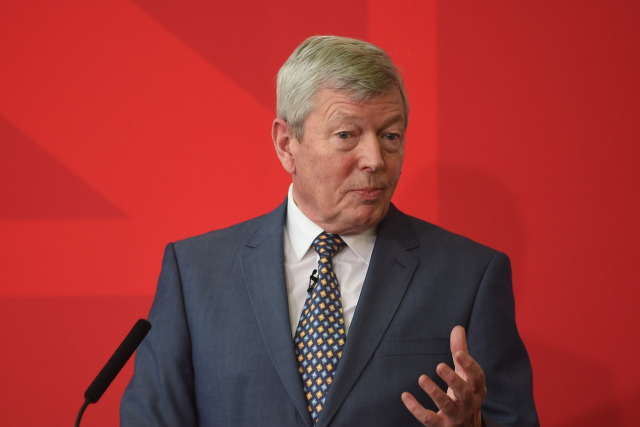IF YOU'RE going to make a speech about democracy and employment rights, The People’s History Museum is one of the most appropriate locations in the country. Turns out it's one of Jeremy Corbyn’s favourite spots in Manchester, where he can champion the rights we now take for granted, the rights hard won over many years thanks to the campaigning spirit of ordinary people, many Mancunians among them.
Corbyn is not the EU’s biggest fan
On the morning of Tuesday 21 June, Corbyn delivered a thoughtful if low-key speech to the Labour party faithful, supported by Alan Johnson and Diane Abbott, as part of Labour’s Remain campaign.
Alan Johnson reminded people of the arguments presented back in the mid-70s, when the UK voted to join the then European Economic Community (EEC). The 70s ‘Yes’ leaflet, which as a postman he’d delivered, said the vote was:
'To bring together the peoples of Europe, to raise living standards and improve working conditions, to promote growth and boost world trade to help the poorest regions of Europe and the rest of the world. To help maintain peace and freedom.'
Johnson commented:
"That vision is as relevant today 41 years later. Jeremy and I as baby boomers are part of the first generation of men who were not sent off to fight a war on European soil.
"Two World Wars began on our continent in the first 40 years of the 20th Century. The House of Commons Library tell me there were 56 wars in Europe during the 19th Century and periodically for a 1000 years before, Europeans slaughtered one another as a way of settling their differences.
"Since the European Coal and Steel Community was created out of the carnage of World War Two, in Churchill’s famous phrase, ‘Jaw-Jaw has replaced War-War’ and countries that hardly knew free speech, democracy and the rule of law have been welcomed into an institution where those rights are enshrined under Article 6 of its constitution."
 Alan Johnson reminded the audience of the arguments presented back in the mid-70s
Alan Johnson reminded the audience of the arguments presented back in the mid-70s
Diane Abbott, meanwhile, talked briefly and knowledgeably of Manchester’s contribution to the anti-slavery petitions of 1792, of ordinary people recognising the importance of an international voice. She also hit out at UKIP leader, Nigel Farage, for suggesting less European migrants might see the welcome arrival of more from the Commonwealth.
"Anybody who thinks that Nigel Farage is speaking against European migrants because he just wants to let more Commonwealth migrants into the country hasn't been paying attention to UKIP," said Abbott.
Jeremy Corbyn followed with a speech which was calm, collected and pertinent. His theme: 'We achieve more by working together; we will achieve very little if we stand alone.'
Corbyn is not the EU’s biggest fan, basing his argument for Remain on the reality of power in the modern world and the concern, even fear, that if Brexit wins British workers would lose out, particularly under a government run by those planning a 'bonfire of workers’ rights'.
"They (Leave campaigners) have stated clearly that they want to leave Europe to water down workers' rights," said Corbyn, going on to say some Leave supporters sought to 'rip up the protections that protect work-life balance, that prevent discrimination and prevent exploitation and justice.'
The choice of location gives emphasis to the argument.
Modern political meetings are largely stage-managed affairs in front of invited audiences, not the open meetings held years ago. We’re now used to the fact that genuine debate usually takes a back seat.
With less than 24 hours to go before polls open, there's concern and commitment, but also calm from Corbyn, despite his assertion that Labour were 'very, very ready' to contest a snap general election, should Brexit take place.
The result of the EU Referendum will be announced from Manchester Town Hall on Friday 24 August.
 Powered by Wakelet
Powered by Wakelet












